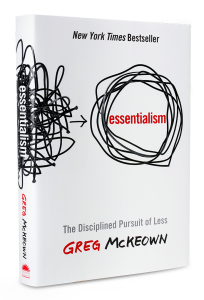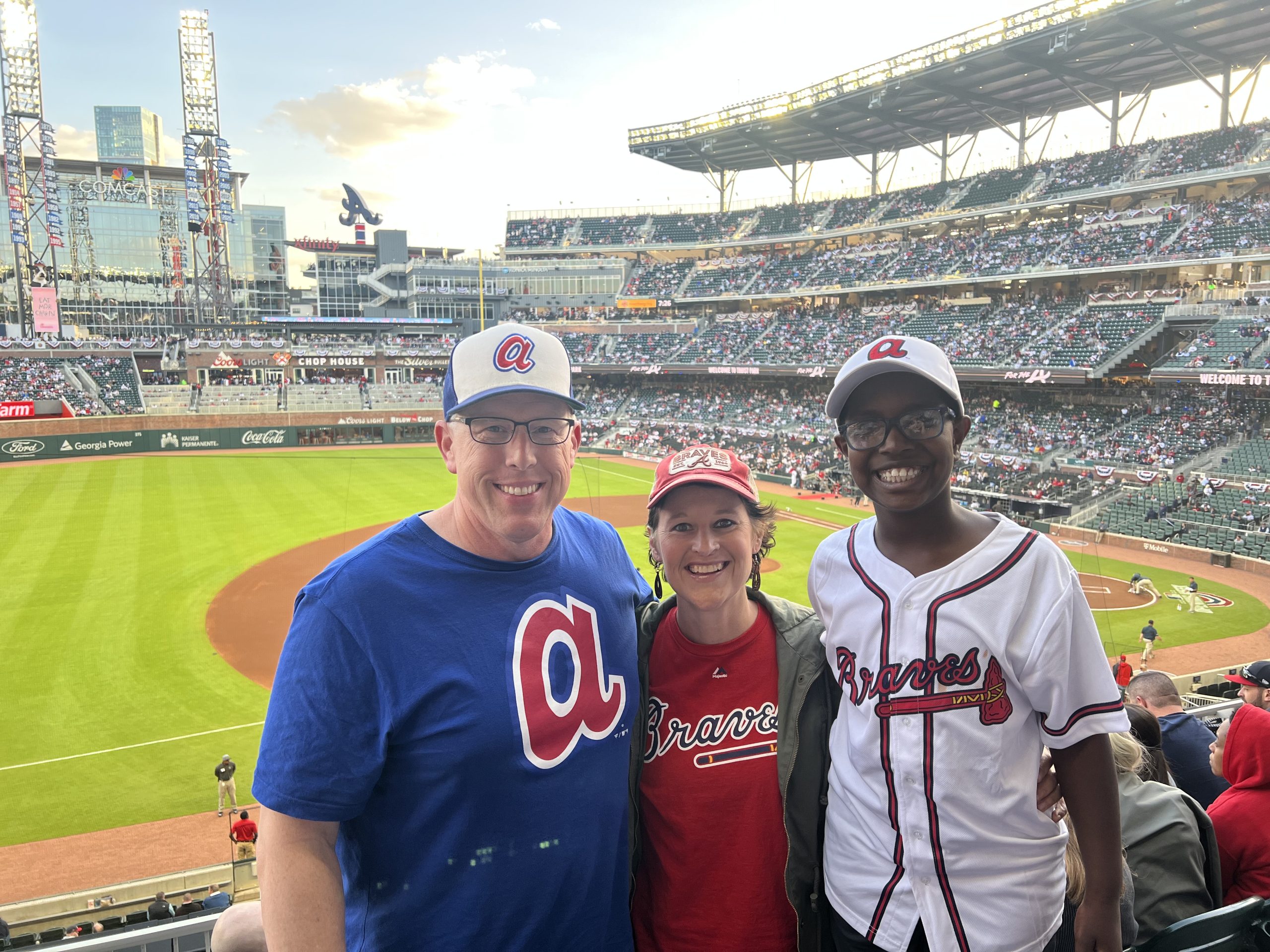I’m so glad that I’ve found a book to describe what I’ve been aiming for as it relates to keeping the main thing the main thing. Essentialism by Greg McKeown is a great look at how to organize your life and priorities to make sure you are investing your time and efforts in the right things…rather than the things that come up throughout the day that can hijack your schedule and your plans. It’s another look at the urgent v important argument. When it’s all said and done and your time on this earth is done…what will you have wanted to invest your time in? As a Christ follower, the question is even more important as you have to consider what you will spend your life on in light of eternity.
This book was recommended to me by several friends as I was making my reading list for the year. This is a book that I’ll eagerly pass along to friends. Essentialism is also closely related to our family’s commitment to be debt-free because it talks about not extending yourself past what you are truly capable of considering your time and effort limits.
I highlighted several things while reading and have posted those notes below…
- Essentialism isn’t about getting more done in less time. It’s about getting only the right things done.
- “The wisdom of life consists in the elimination of non-essentials.” Lin Yutang
- Can I actually fulfill this request, given the time and resources I have?
- Is this the very most important thing I should be doing with my time and resources right now?
- Instead of making just a millimeter of progress in a million directions he began to generate tremendous momentum towards accomplishing the thins that were truly vital.
- The basic value proposition of Essentialism: only once you give yourself permission to stop trying got do it all, to stop saying yes to everyone, can you make your highest contribution towards the things that really matter.
- Three German Words: Weniger aber besser. The English translation: Less but better.
- Essentialism is not about how to get more things done; it’s about how to get the right things done. It doesn’t mean just doing less for the sake of less either. It is about making the wisest possible investment of your time and energy in order to operate at our highest point of contribution by doing only what is essential.
- Essentialism is a disciplined, systematic approach for determining where our highest point of contribution lies, then making execution of those things almost effortless.
- If you don’t prioritize your life, someone else will.
- What would happen if we could figure out the one thing you could do that would make the highest contribution?
- When we really have clarity of purpose, it enables us to succeed at our endeavor.
- Core mindset of an essentialist…
1. Individual choice: We can choose how to spend our energy and time.
2. The prevalence of noise: Almost everything is noise, and a very few things are exceptionally valuable.
3. The reality of trade-offs: We can’t have it all or do it all. - What if we stopped being oversold the value of having more and being undersold the value of having less?
- What if we stopped celebrating being busy as a measurement of importance?
- “It is the ability to choose which makes us human.” Madeleine L’Engle
- When we surrender our ability to choose, something or someone else will step in to choose for us.
- The overwhelming reality is: we live in a world where almost everything is worthless and a very few things are exceptionally valuable.
- “Strategy is about making choices, trade-offs. It’s about deliberately choosing to be different.” Michael Porter
- Saying yes to any opportunity by definition requires saying no to several others.
- Essentialists see trade-offs as an inherent part of life, not as an inherently negative part of life. Instead of asking, “What do I have to give up?” they ask, “What do I want to go big on?” The cumulative impact of this small change in thinking can be profound.
- “Without great solitude no serious work is possible.” Pablo Picasso
- We need space to escape in order to discern the essential few from the trivial many.
- Of course, nobody like to be bored. But by abolishing any chance of being bored we have also lost the time we used to have to think and process.
- “Where is the knowledge we have lost in information?” T.S. Eliot
- Essentialists are powerful observers and listeners.
- Essentialists choose to do one fewer thing right now in order to do more tomorrow. Yes, it is a trade-off. But cumulatively, this small trade-off can yield big rewards.
- Making our criteria both selective and explicit affords us a systematic tool for discerning what is essential and filtering out the things that are not.
- If it isn’t a clear yes, then it’s a clear no.
- If I didn’t already own this, how much would I spend to buy it?
- What do you really want out of your career over the next 5 years?
- When there is a serious lack of clarity about what the team stands for and what their goals and roles are, people experience confusion, stress, and frustration. When there is a high level of clarity, on the other hand, people thrive.
- “Courage is grace under pressure.” Ernest Hemingway
- The right “no” spoken at the right time can change the course of history.
- A true Essentialist, Peter Drucker believed that “people are effective because they say no.”
- Only once we clearly separate the decision from the relationship can we make a clear decision and then separately find the courage and compassion to communicate it.
- Essentialists accept they cannot be popular with everyone all of the time. Yes, saying no respectfully, reasonably, and gracefully can come at a short-term social cost. But part of living the way of the Essentialist is realizing respect is far more valuable than popularity in the long run.
- “Half of the troubles of this life can be traced to saying yes too quickly and not saying no soon enough.” Josh Billings
- Boundaries are a little like the walls of a sandcastle. The second we let one fall over, the rest of them come crashing down.
- Essentialists accept the reality that we can never fully anticipate or prepare for every scenario or eventuality; the future is simply too unpredictable. Instead, they build in buffers to reduce the friction caused by the unexpected.
- Multitasking itself is not the enemy of Essentialism; pretending we can “multi focus” is.
- “Beware the barrenness of a busy life.” Socrates


